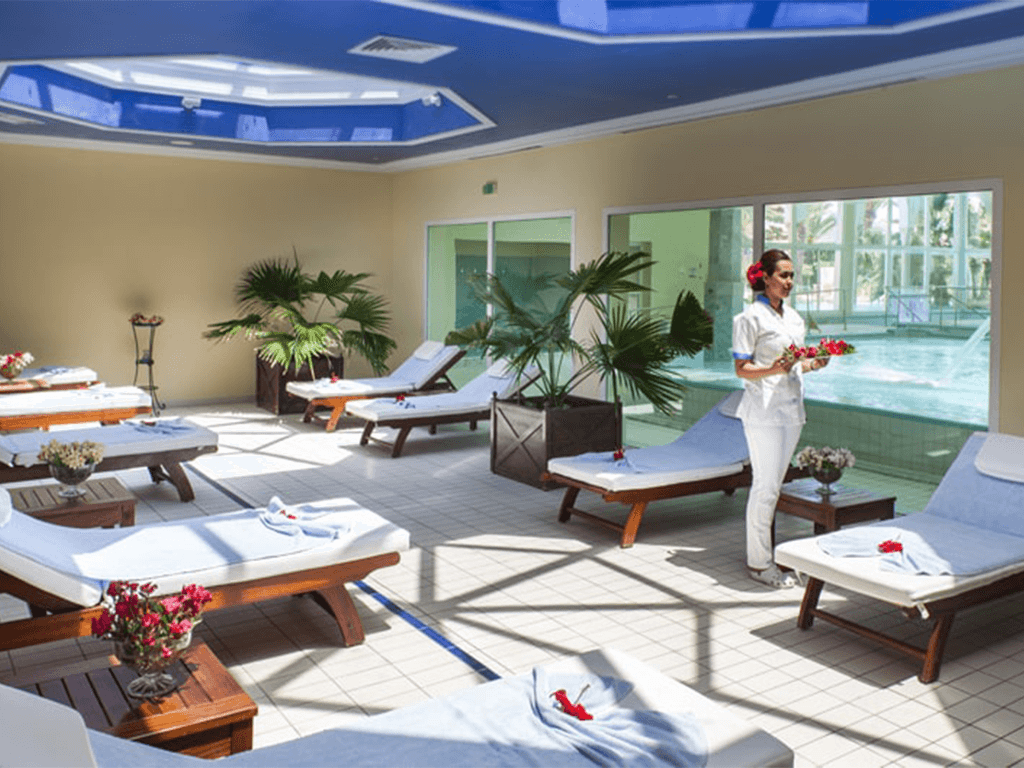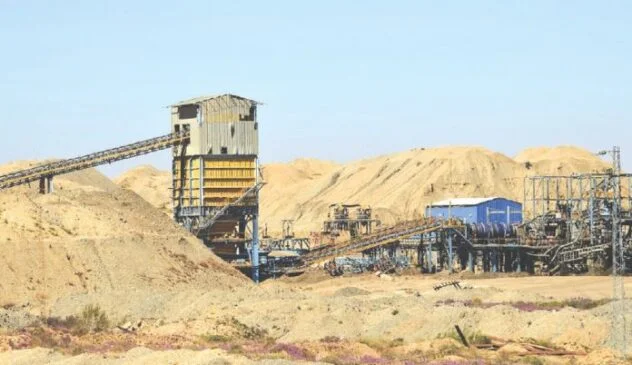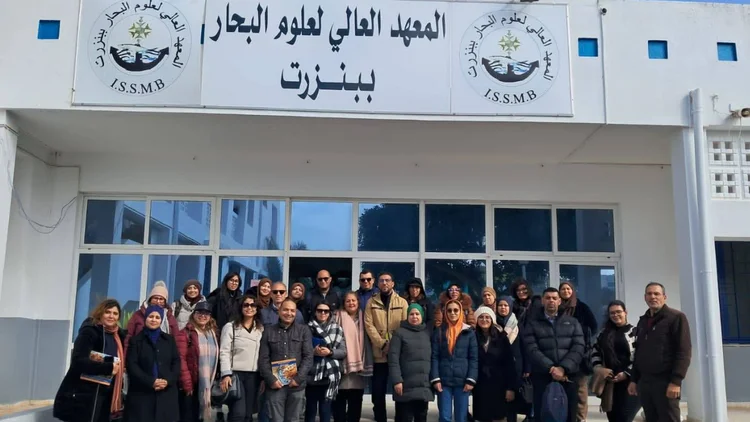Hasdrubal Thalassa & Spa Yasmine Hammamet
Tunisia has become the world’s second largest destination for seawater treatments, known as thalassotherapy, thanks to its Mediterranean coastline, natural thermal springs, mild weather and affordability.
Historically, one of Tunisia’s hot spots for the therapy, which uses seawater and other marine resources, is Korbous, a coastal town on the Cap Bon peninsula.
Thalassotherapy is an “ancestral heritage” for Tunisians, “since hydrotherapy has existed in Tunisia since antiquity, at the time of the Carthaginians and the Romans,” Shahnez Guizani, the head of the National Office of Thermalism (ONTH), told AFP.
Other popular thalassotherapy destinations in the country include Sousse, Hammamet, Monastir, and Djerba, which TAP News Agency said was named the Mediterranean thalassotherapy capital in 2014 by the World Federation of Hydrotherapy and Climatotherapy.
Customers mainly come for the quality of spring water, said Raja Haddad, a doctor who heads the thalassotherapy centre at the Royal Tulip Korbous Bay hotel.
Today, Tunisia boasts 60 thalassotherapy centres and 390 spas, 84 percent of which are located in hotels, according to the ONTH.
Tourism accounts for seven percent of the country’s GDP and provides nearly half a million jobs, according to official figures.
The sector has seen a decade of setbacks due to terrorist attacks and later the COVID-19 pandemic.
But it has been recovering again as the number of foreign visitors exceeded 10 million last year — a record for the country of 12 million people. Guizani said thalassotherapy on its draws about 1.2 million foreign visitors a year, with “70 per cent coming from Europe, including 40 per cent from France”.
The industry generates approximately 200 million dinars ($63 million, 60 million euros) per year, she added.
That compares with a French thalassotherapy market valued at around 100 million euros last year, according to market research firm Businesscoot.
Kaouther Meddeb, head of the thalassotherapy and spa centre at the Royal Elyssa Hotel in Monastir, said the number of clients has been growing lately.
Yet despite meeting international standards, the sector remains underappreciated in Tunisia, she said.
“There’s a lack of communication and promotion,” she added.
Experts say more investment is needed in infrastructure. This includes road improvements and air services, they say, as there are few low-cost flights.
But plans are already underway to develop eco-friendly thermal resorts in regions like Beni M’tir, a mountainous village in the northwest, and near Lake Ichkeul south of Bizerte, said Guizani.
“With all the advantages it has, Tunisia is poised to become the world leader in thalassotherapy,” she added.
TunisianMonitorOnline (NejiMed)




